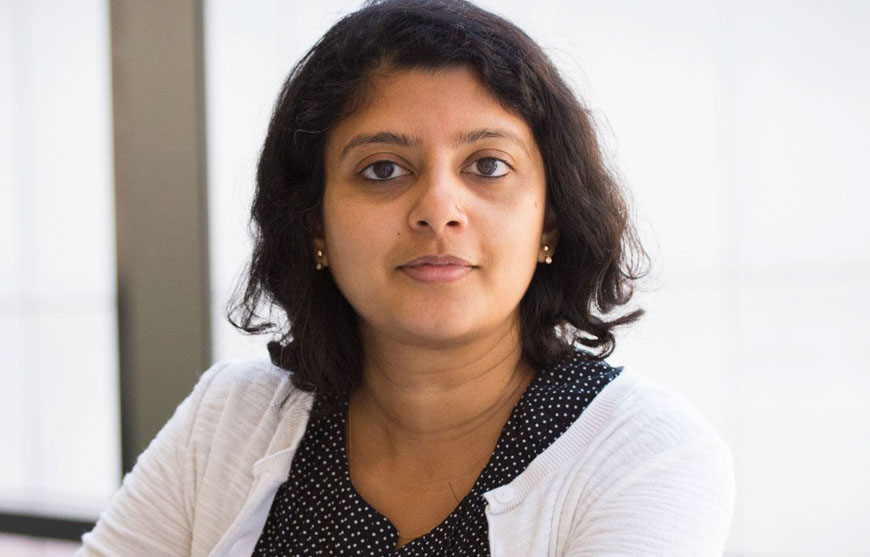The National Institutes of Health recognizes National Minority Health Month each April. This is a time to raise awareness about the importance of reducing the health disparities faced by racial and ethnic minorities.
For our part, we spoke to Assistant Professor Svasti Haricharan, PhD, about her recently published review in Clinical Cancer Research. The paper describes some of the shortfalls of the current research focusing on cancer disparities. It also reveals what needs to happen to solve this problem.
This paper describes “research silos” in cancer disparities, but what does this term mean?
The cancer research community has made a lot of progress recognizing that cancer research has a data diversity problem. We know that we need more researchers working on cancer disparities—for example, finding explanations as to why some racial and ethnic minorities have worse cancer survival rates than others. We also know that we need to generate more inclusive data in cancer research generally, which means building databases that include data from people of different backgrounds.
However, what we’re talking about in this new paper is a bit more subtle than that. It has more to do with which disparities researchers are studying and how they’re studying them. Cancer-disparities researchers tend to fall into two different categories with two very different approaches. One group focuses more on the societal problems driving disparities, and the other group is looking closely at the biology. But these two paths aren’t intersecting, which is preventing us from truly addressing racial disparities in cancer.
Can you tell us more about those two groups and how this division affects cancer research?
The first group includes researchers who study cancer disparities in the way most people understand them. They focus on social determinants of health, such as socioeconomic status and systemic bias in the healthcare system. The second group looks at the biology directly, focusing on how genetics impacts the molecular biology of cancer. These are both important research areas, and we’ve made a lot of progress independently with each of them.
The problem is that focusing on one or the other ignores something critical that has gained attention in recent years: lifestyle factors have a direct impact on the molecular biology of cancer. Our lived experiences leave a unique footprint in our cells on top of what’s already there because of what we inherited at birth. By keeping these two types of cancer research trapped in silos, we’re missing synergistic leaps that could truly transform our understanding of cancer outcome inequity. Breaking down these silos is the only way to keep moving this type of research forward.
How can we break down these silos?
Looking at it broadly, funding bodies need to invest more in research that develops datasets using biological samples from underrepresented groups. This will help us learn more about how societal factors can have a different impact on the biology of cancer—depending on the person with the disease. Here in the lab, we need to create experimental systems that better represent the biology of people from racial and ethnic minorities. This could also help us solve an even bigger problem.
Therapeutic strategies for cancer that we find in the lab don’t often make it to the clinic. Improving the diversity of our cancer data will improve this success-to-failure ratio. It will help us identify treatments that work better in some people than in others and choose the best treatments for each patient. In other words, it will help us work toward truly individualized medicine. Ultimately, we can only develop good precision medicine for cancer when we start looking at all patient demographics more equitably.
